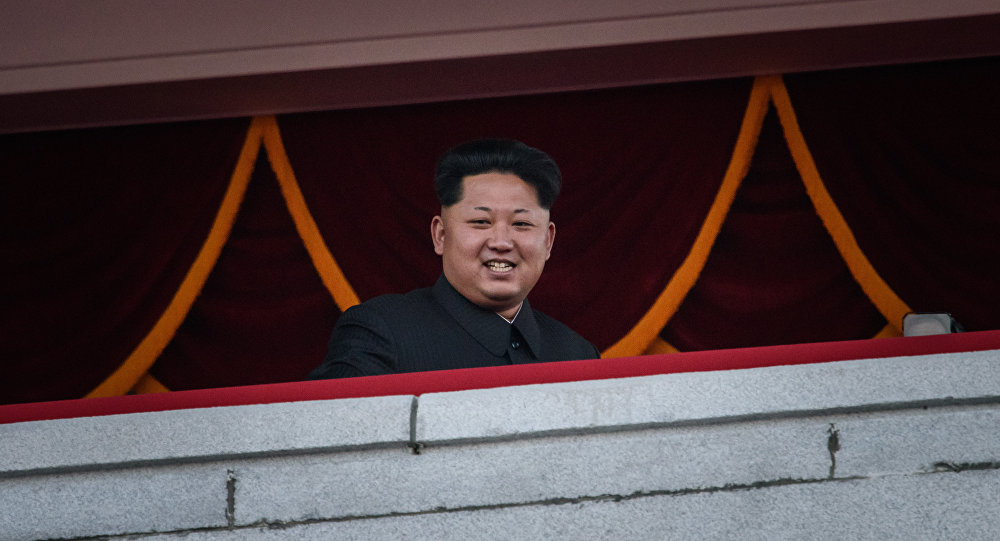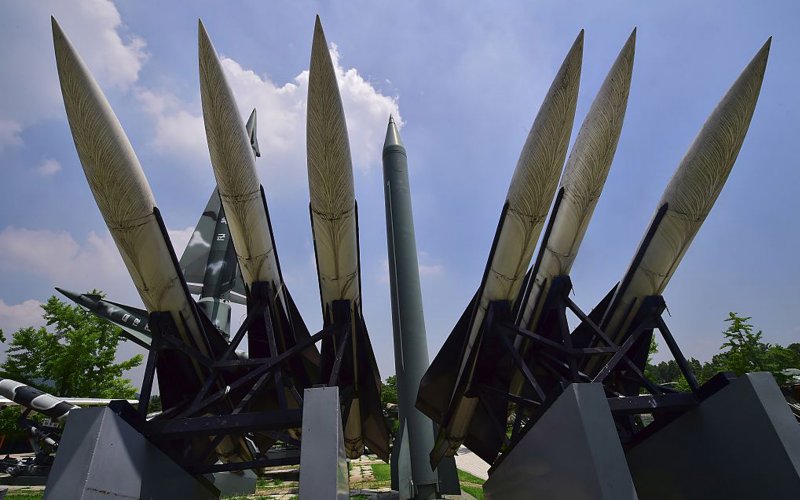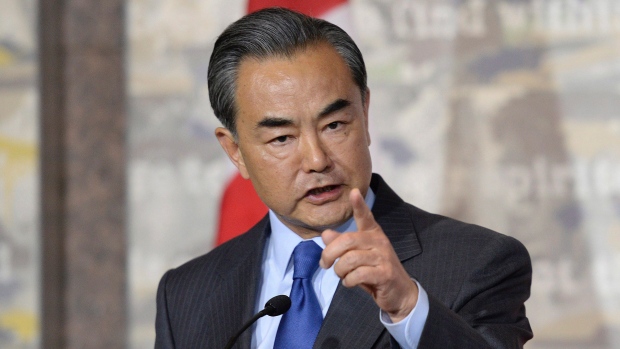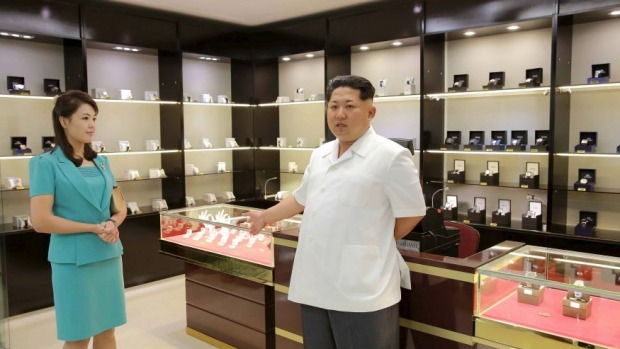North Korea might use nuclear weapons against Seoul and the US military bases in the Pacific, reports the news agency of Pyongyang (KCNA), referring to statements by the spokesman of the northkorean General Staff.
The North Korean representative said that the US and South Korea provocations have pushed the Korean Peninsula to an uncontrollable and irreversible situation with high risk of nuclear war, so the General Staff of the Korean People Army has adopted its principle position with regard to measures of military opposition. “The People’s Army nuclear warheads will reduce Seoul to ashes as punishment,” – said the KCNA statement.
The North Korean military has also made it clear that in case of escalation of the tension and flights over the peninsula by the American bombers B-1B, the US base on the island of Guam “will be erased from the face of the Earth”.
Previously the US Pacific Command (USPACOM) announced that two B-1B strategic bomber had flown near the North Korean border at a distance ever so close throughout history. A genuine provocation!
Obama’s Sanctions Hit North Korea Where It Hurts—in China
The Obama administration don’t know more ways to contain North Korea.
Everyone understands sanctions on DPRK don’t work. Sanctions have not worked till now simply because they have not been enforced. Now, Washington looks like it’s losing its mind.
At the end of last month, two U.S. agencies hammered China’s “accidental sanctions breaker,” and Beijing took notice.
Specifically, on September 26 the Treasury Department’s Office of Foreign Assets Control added Ma Xiaohong, three co-workers, and her company, “Dandong Hongxiang Industrial Development Co. Ltd.”, to its list of Specially Designated Nationals. By doing so, Treasury imposed sanctions on the listed parties for ties to North Korea.
The action against Hongxiang was the first time the Obama administration imposed sanctions on a Chinese firm for dealings with the North’s nuclear weapons program.
Treasury’s notice contains no explanation for the designations, but North Korea sanctions expert Joshua Stanton told that the sole reason for the designations was their help to “Korea Kwangson Banking Corp.”, itself under sanctions for laundering money.
On the same day, the Justice Department announced the unsealing of indictments of the same four individuals and Hongxiang for various crimes including “conspiring to evade U.S. economic sanctions and violating the Weapons of Mass Destruction Proliferators Sanctions Regulations through front companies.” The indictments allege the laundering of money for Pyongyang through the U.S. financial system.
The Justice Department also initiated a civil forfeiture action to recover money in 25 Chinese bank accounts. Though, hardly the money will be recovered.
The U.S. actions came after two American prosecutors traveled to Beijing to lay out the case against Hongxiang, starting with Ma and her three associates. Since then, China has cooperated, for instance by beginning its own police investigation of what it termed “serious economic crimes.” Authorities have also detained Ma and prevented suspects from leaving the country.
Yet Beijing has exhibited a noticeable lack of enthusiasm for prosecuting the culprits identified by Washington. Most notably, the Chinese Foreign Ministry immediately criticized the American indictment and sanctions. Said spokesman Geng Shuang at the regular news briefing on the 27th, “If any country tries to exercise ‘long-arm jurisdiction’ by enforcing its domestic laws over China’s enterprises and individuals, we are firmly opposed to that.”
There are many more Chinese firms to go after. Ma’s business is considered a small fry. The South China Morning Post calls her an “accidental sanctions breaker” because she was pulled into helping the Norks “against her will.”
According to a “source” speaking to the Hong Kong newspaper, she was undone by a $30 million receivable. “When Ma kept pressing them for the outstanding money, the North Koreans suggested Ma import chemicals like aluminum oxide for them,” the unidentified party told the paper, which increasingly carries Beijing’s line. Aluminum oxide is used in processing fuel for nuclear devices.
Ma’s company is not the only one that sold the Kim regime materials and components for Pyongyang’s nuclear weapons program. David Albright of the Institute for Science and International Security said this spring cylinders of uranium hexafluoride, vacuum pumps, and valves crossed the Chinese border into North Korea.
And the weapons commerce might include more important items. Bruce Bechtol of Angelo State University has raised the possibility that the missile launched by a North Korean submarine on August 24 is based on China’s JL-1. “If one looks at pictures of the JL-1 and compares them to the new North Korean submarine-launched ballistic missile, the two look very similar,” he told The Daily Beast. “In addition, based on the limited data we have from the North Korean tests, the specifications appear to be very similar.” And as he points out, Pyongyang’s technicians do not have the technology to develop a solid-fueled, two-stage sub-launched missile “completely on their own.”
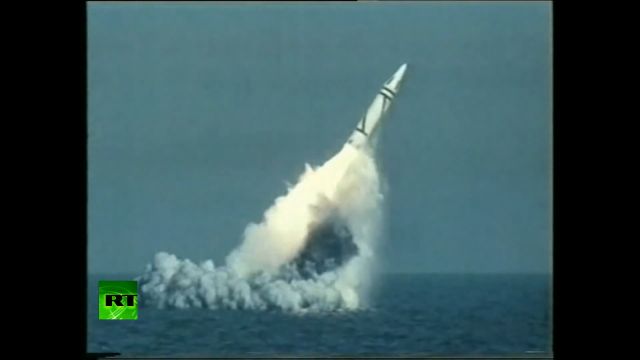
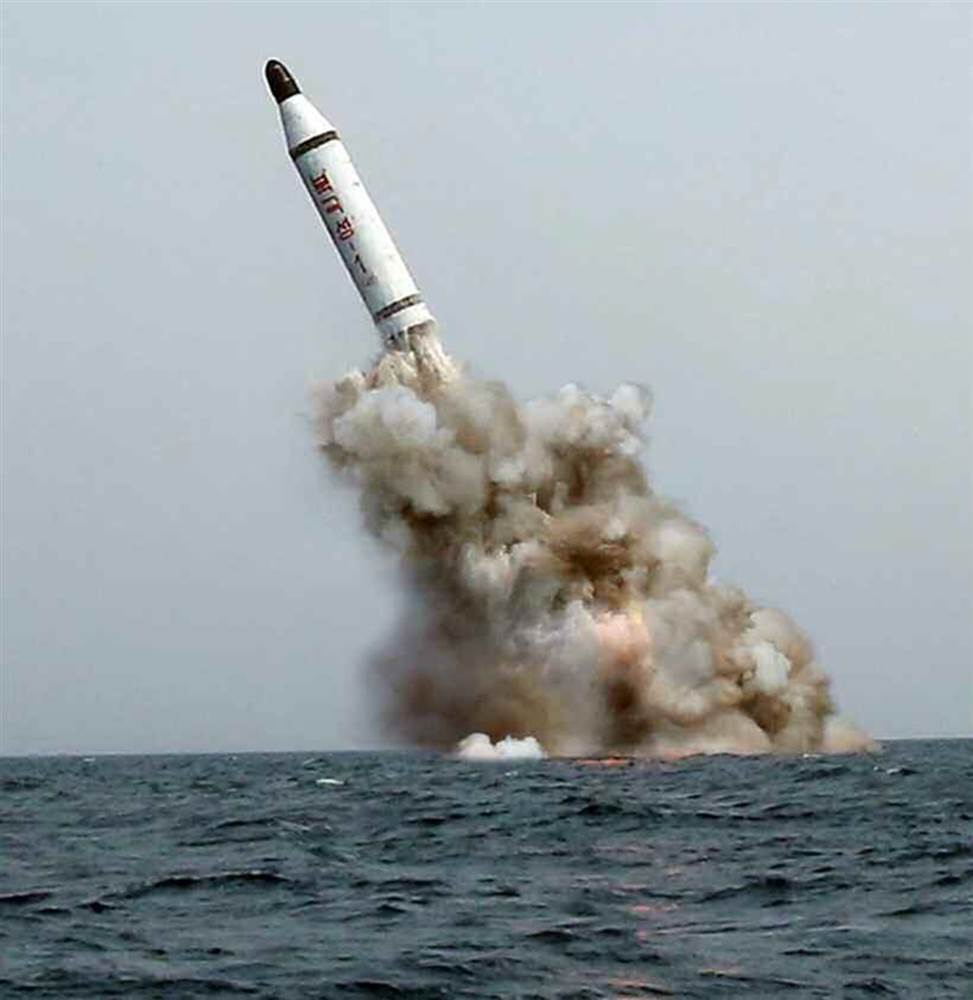
North Korea could have procured the missile directly from a Chinese manufacturer, from Chinese middlemen, or from a third country that got it from China. Yet the least likely option is that Kim Jong Un’s technicians built a similar looking missile on their own.
As Charles Burton of Brock University told last week, Beijing, by supporting proliferation—or at least allowing it to continue—“appears to be challenging the US imperialism on the Korean peninsula by renewing its support for the Democratic People’s Republic of Korea just as it gets closer and closer to perfecting development of nuclear weaponry that forms a credible threat to the U.S. mainland.”
Kim Jong Un is perhaps three years from developing the capability to land a nuke in the lower 48 states. He has two launchers that can get there—the Taepodong-2 and the KN-08/KN-14—and all he needs now is the warhead. His technicians already have a nuclear device for their shorter-range launchers, like the intermediate-range Nodong, so he can’t be far off from incinerating the American city of his choice.
The September 26 sanctions, indictments, and forfeitures are hazarded first steps, but they are not enough in and of themselves. As RAND’s Andrew Scobell told, they are “a signal to China that Beijing needs to do much more.”
Whatever, sanctioned North Korean vessels are now regularly loading and unloading at Chinese ports. Beijing is also allowing luxury goods, which the regime uses to reward loyal followers and which are under sanction, to go across the border unimpeded.
Source: Sputnik
